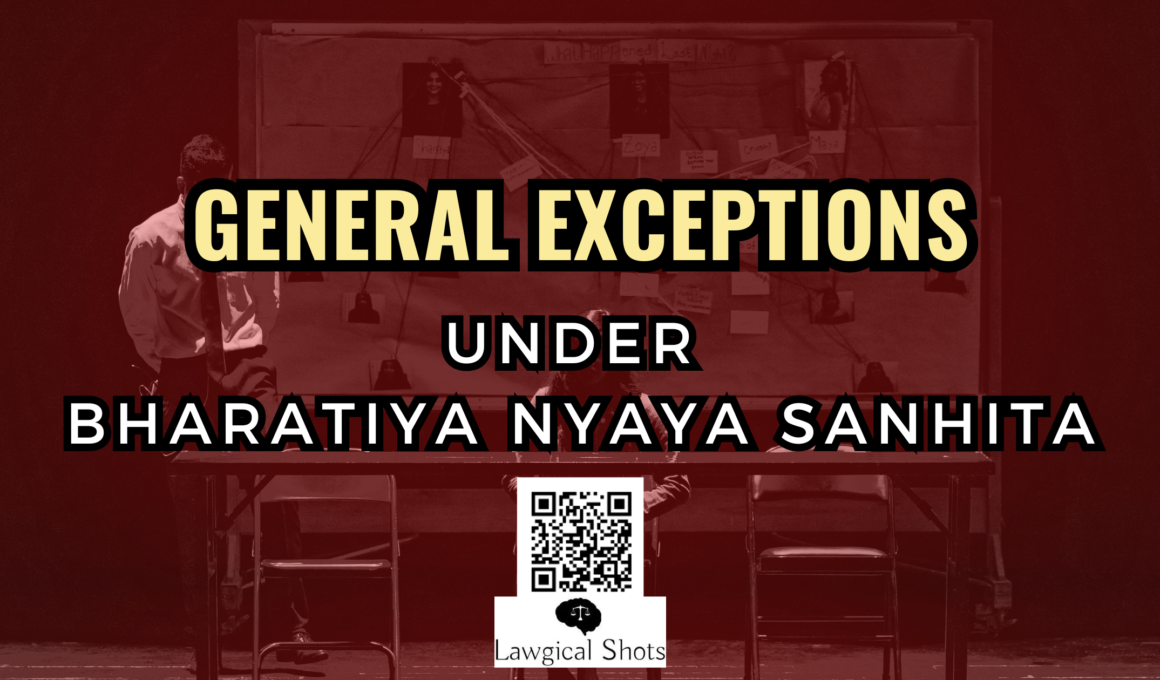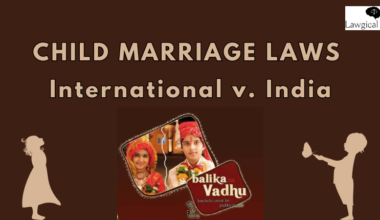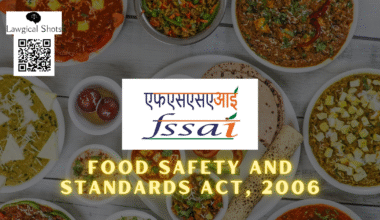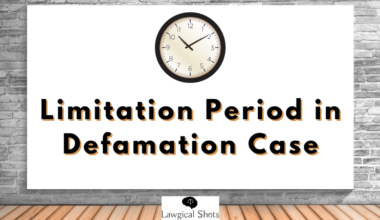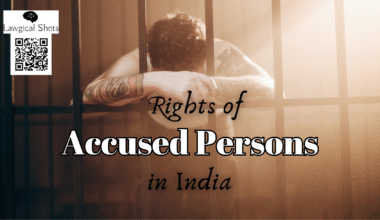There was a very famous doctor who was supposed to perform a very critical surgery. The patient had a cyst protruding in his stomach, which needed to be removed. However, the surgery was crucial because if the removal procedure was successful without any glitch, it would save the patient, but if the cyst ruptured, the patient would die then and there. The doctor performed the surgery, but the cyst ruptured, causing the patient to die on the same operating table. Is it an excusable offence? While the doctor had knowledge that death could be a consequence, and the surgery may aggravate the chances of survival, would he be punishable for committing murder? Obviously not, and the explanation lies with the general exceptions under BNS 2023. Here is a step-by-step discussion on general exceptions of the Bharatiya Nyaya Sanhita which give an escape from punishment for genuine circumstances.
What are Excusable Offences under BNS?
Those acts, which are otherwise declared as offences, but bring in the excuse against punishment due to specific circumstances, are called excusable offences. While this is not an official term defined under the Bharatiya Nyaya Sanhita, here is a reference to the literal meaning. In other words, an act is not an offence but excusable if it falls within the parameters of general exceptions under BNS 2023. To understand better, let’s go into depths of this law.
General Exceptions under Bharatiya Nyaya Sanhita
Chapter 3 of the Bharatiya Nyaya Sanhita, 2023 provides about the general exceptions. The Chapter lays about what is generally understood as the excusable offences in BNS. The acts are generally excused
General Exceptions in BNS Sections 14 to 44
- Section 14 – Act done by a person bound, or by mistake of fact believing himself bound, by law
If a person is required by law to do an act which otherwise is an offence, will be among the general exceptions in BNS. Even if the person believes to be bound by such law which in fact is mistaken, the said belief of being bound by law to do such an act excuses the person from being tried for an offence.
Example: If Rajesh is ordered by the Court to arrest Ram, but Rajesh confuses Ram with his twin Shyam and arrests him, he gets the benefit of Section 14 of BNS.
- Section 15 – Act of Judge when acting judicially
If a Judge acts judicially (means acting for his/her office) does something in exercise of power given by law, or so he/she believes, the said act will not be an offence. In other words, if a Judge does something which may otherwise be an offence, the said action is excusable if the said Judge is acting judicially or believes that the law requires him/her to do so.
Example: When a Sessions Judge orders capital punishment for a murderer, the said order does not abet murder.
- Section 16 – Act done pursuant to judgment or order of Court.
If something is warranted by an order or judgment of the Court, the said action is not an offence, even if the Court lacked jurisdiction to pass the said order/judgment.
- Section 17 – Act done by a person justified, or by mistake of fact believing himself justified, by law
If a person is justified by law to do an act which is otherwise a crime, it becomes a general exception in BNS. Even if the said person believes so due to a mistake of fact, the excuse remains and protects against trial.
- Section 18 – Accident in doing a lawful act.
Anything done by accident or misfortune, in the absence of a criminal intent or knowledge, which is a lawful act done in a lawful manner with care and caution, is not an offence.
- Section 19 – Act likely to cause harm, but done without criminal intent, and to prevent other harm.
If a person knows that a certain act is likely to cause harm, but does so in good faith without any criminal intention, in order to prevent harm to a person or property, the said act attracts general exceptions under Bharatiya Nyaya Sanhita.
Example: Shailesh was present when a neighbour’s kid choked on a peanut, and Shailesh caught the kid to hardly pat him on the back to save the kid’s life, which in turn caused some minor injury to the ribs. In this case, Shailesh’s action was intended to protect the child while he knew that the pats may be a bit hurtful, the general exceptions still attract.
- Section 20 – Act of a child under seven years of age
Children are innocent souls, and their intelligence develops with age. Little ones mostly do not understand the nature of actions and their probable reactions. Keeping this fact in view, the general exceptions of Bharatiya Nyaya Sanhita exclude acts done by kids under 7 years of age.
Example: Mishti, a 6 year old baby girl did not know that the phenyl used for cleaning the house was not edible. She thought it to be a refreshing milkshake and offered the guests in the house with ice. Any casualty in furtherance of this mishappening will not involve Mishti for trial in the Court due to her age.
- Section 21 – Act of a child above seven and under twelve years of age of immature understanding
While children under the age of 7 years are universally understood to be naive, those above cannot be prosecuted for crossing a few days, because maturity doesn’t come overnight. Hence, those above 7 years and below 12 years of age are assessed for maturity in order to attract the protection of excusable offences.
Example: Ahaan was 11 years old when the neighbour caught him stealing money from the cash box in the shop. When questioned about this act, Ahaan nonchalantly replied that he was friends with the staff who used to play and exchange treats with each other in chocolates and collectible stamps. Ahaan’s reply confirmed that he did not understand the offence of theft.
- Section 22 – Act of a person of unsound mind
If a person of unsound mind does something, while being totally unaware of the nature of the act done, whether such act is against the laws, it is not an offence. The provision benefits lunatics, delusional or psychotic cases. To attract the protection of general exception of unsound mind, the parties needs to provide sufficient medical evidence to prove their stance.
- Section 23 – Act of a person incapable of judgment by reason of intoxication caused against his will.
If a person is intoxicated and thus unable to judge or understand the gravity of the illegal act done, such an act is not an offence. The mere requirement is that the person should have been intoxicated against his/her own will. It should not be voluntary or intoxication, and the person should not have the knowledge of intoxicating substances taken.
Example: Sheena went to a friend’s house where she was forced to drink alcohol, while she persistently refused. The drink had such a strong effect that Sheena did not realize when she got a hammer in her hand and she happened to destroy some of the expensive goods at her friend’s place. Since Sheena was intoxicated against her will, she cannot be prosecuted for the destruction incurred at her friend’s place.
- Section 24 – Offence requiring a particular intent or knowledge committed by one who is intoxicated.
If an offence done requires a particular knowledge or intent, it will be considered an offence even if done by a person in the state of intoxication. The general exception applies if the intoxication was administered without knowledge or against the person’s will.
Example: Rashmi is a nurse by profession, who injected a poisonous drug in high quantity to a person who died immediately. Rashmi was in a drunk state since her drink was spiked, and she was being instructed to do things. While handling injections requires a specific skill, Rashmi was intoxicated against her will, and hence, the umbrella of excusable offences is applicable on her.
- Section 25 – Act not intended and not known to be likely to cause death or grievous hurt, done by consent.
If a person does something to an adult with his/her consent, without intending or knowing that it will cause death or grievous hurt, such an act is not an offence. The said consent by the adult may be given in express or implied manner.
Example: Ansh and Ritu take a “Try this food” challenge. The game involved bringing different foods to be tasted by one another while being blindfolded, to identify what exactly it is. Ritu did not know that Ansh was allergic to peanuts. Ansh had to be hospitalized after tasting a dish introduced by Ritu, but Ritu could not be sued for causing grievous hurt to Ansh due to lack of knowledge about his allergy to peanuts.
- Section 26 – Act not intended to cause death, done by consent in good faith for person’s benefit.
If harm is caused by a person to another with the intention to benefit the other, who in turn consented to the harm caused, it is not an offence. Provided that there was no intention to cause death in such circumstances but only done with the aim to extend the benefit to the consenting party.
Example: Antara was suffering from some kind of illness which several doctors were not able to treat. It had been a while dealing with unbearable pain. Meanwhile, Antara was introduced with a Hakim who stated that her illness may be cured by his treatment, but there were risks involved to her life. Knowing all this, Antara still went for the treatment, and did not survive. Since the treatment was proceeded with after Antara’s consent, and done only for her benefit, the negative outcome of death is protected with the general exceptions under BNS.
- Section 27 – Act done in good faith for benefit of child or person of unsound mind, by, or by consent of guardian.
It is not an offence if a person does an act for the benefit of a child (under 12 years of age) or a person of unsound mind, while his/her guardian consents for it. Any harm caused in such circumstances will be covered under the excusable offences of Bharatiya Nyaya Sanhita. There are certain exceptions to the “act” discussed here:
- Intentionally causing death or attempting the same;
- Doing something which he/she knows is likely to cause death, if the purpose is other than prevention of death/grievous hurt/curing grievous disease/infirmity;
- Voluntarily causing or attempting grievous hurt unless done to prevent death/grievous hurt/curing grievous disease/infirmity;
- If the general exceptions in BNS are not available against an offence committed, it will not be an exception to the abetment of such offence.
- Section 28 – Consent known to be given under fear or misconception.
Consent holds a lot of importance in deciding some of the general exceptions of Bharatiya Nyaya Sanhita, whether harm was caused with the victim’s consent. If it is proved that the consent was given out of fear of the accused, that is not an excusable offence. On the other hand, if there was some misconception while consenting to the act, it is still not an exception against the criminal prosecution.
Example: Nishant made Rahul buy a few packets of prohibited drugs and deliver them to certain people. Rahul abided by Nishant’s instructions because his new born son was in Nishant’s custody until the delivery was made. While the act was illegal, Rahul did not consent to do it on his own will, but for the fear of preventing any harm caused to his newborn baby. Hence, the general exceptions under BNS will be applicable in this case.
- Section 29 – Exclusion of acts which are offences independently of harm caused.
If an act is an offence regardless of whether consent is given or not, the protection of general exceptions does not apply. The said aspect is related to the general exceptions under Sections 25, 26 and 27.
Example: Causing miscarriage is an offence unless done in good faith to save the life of the pregnant woman. Hence, even if the woman or her guardian consents to causing such miscarriage, it is still an offence, not being dependent upon the consent so given. Thus, the general exceptions under BNS do not apply in this case.
- Section 30 – Act done in good faith for benefit of a person without consent.
If an act is done in good faith, for the sole purpose of the benefit of a person, without his/her consent, the harm caused in the course of action will not constitute an offence. There are certain exceptions to this one:
- It should not be intentionally causing or attempting to cause death;
- If the act was not done to prevent death or grievous hurt, but there was knowledge that the act may cause death;
- It it was voluntarily causing or attempting to cause hurt, for anything except preventing death or hurt;
- If the act committed was not excepted, its attempt will not be among the general exceptions of BNS.
Example: While driving, a bus driver saw a child crossing the busy road. In order to save the child, the bus driver immediately applied emergency brakes, which caused one of the passengers to fall and fracture a bone. In this case, the bus driver is protected as per the Chapter 3 of Bharatiya Nyaya Sanhita, 2023.
- Section 31 – Communication made in good faith.
Words hold a lot of power and may also attract criminal charges at times. If a communication is made in good faith for the benefit of another person, it is not an offence.
Example: Dr. Raghav was an experienced oncologist, who disclosed about Pankaj’s last stage of cancer to his wife. Shocked by the unexpected revelation, Pankaj’s wife suffered a heart attack and could not survive. Here, Dr. Raghav’s communication is covered under the general exceptions under BNS 2023.
- Section 32 – Act to which a person is compelled by threats.
If a person is threatened to do something which is against the law, and the threat means that his/her refusal to comply results in instant death, the said act is not an offence. The person doing so out of apprehension should not have placed himself/herself in this situation. Here, murder and other offences punishable with death sentence are made an exception from seeking protection. Even those who apprehend beating and join a gang of dacoits to commit illegal acts are not protected.
Example: Ishan was a locksmith who was taken by a gang of dacoits to break into a house and commit dacoity. Since Ishan was in instant fear of death, he is protected under the general exceptions of BNS 2023.
- Section 33 – Act causing slight harm.
In India, you never know when a petty argument may turn into a Police case. If it is a matter of slight harm, which a person of ordinary sense or temper would not complain, it is not an offence.
Example: Kamal was standing in a row to deposit money in a bank, when he pushed the person standing ahead of him by mistake, without intending to cause any harm. Even if the other person suffered a jerk, this is not something a person or ordinary prudence would complain of. Hence, Kamal is protected as per Chapter 3 of Bharatiya Nyaya Sanhita.
- Section 34 – Things done in private defence.
While deliberately causing hurt to another person is an offence, a person is protected if the hurt was caused while saving himself/herself or a person/property. In other words, an offence committed while exercising the right to private defence is not an offence.
Example: Lakshya was travelling at night when he noticed an unknown guy following him on bike for quite a while. When Lakshya stopped to enquire, he noticed a pistol in his hand. This prompted Lakshya to respond to the attacker with his tiny knife, which made him run away. The provision of general exceptions under BNS 2023 will safeguard Lakshya in case the attacker proceeds with a criminal case.
- Section 35 – Right of private defence of body and of property
Bharatiya Nyaya Sanhita Section 35 extends the right of private defence against an act, when there is threat against the body or property of a person. In this case, it could be for the protection of own self, or any other person. The right further extends for the protection of property when an offence of theft, robbery, mischief or criminal trespass is likely to be committed.
Example: Rachna was travelling back from office when someone pulled her backpack which contained her laptop, wallet, and other valuables. Rachna quickly responded and hardly punched the person in his face, which resulted in broken facial bones. Since she punched him to protect her valuables, which the person attempted to steal, Rachna’s act was covered among the excusable offences in BNS.
- Section 36 – Right of private defence against act of a person of unsound mind, etc.
While the right of private defense is a protective exception, it extends to persons who are minors, unsound mind, intoxicated, etc. Here, it can be understood that private defense can be exercised even if the attacker is unable to understand the nature of the act committed.
Example: Raj was intoxicated by his friends against his will. Not knowing what he was doing, Raj caught hold of Priya and tried to force himself upon her and attempted to commit sexual assault. Priya in turn broke the glass bottle in her hand and hit Raj on his head, which caused several injuries. Even while Raj did not understand the severity of his actions, Priya was still protected as per general exceptions in BNS since she exercised her right of private defense.
- Section 37 – Acts against which there is no right of private defence
The right of private defense under Bharatiya Nyaya Sanhita comes with great responsibility. Section 37 of BNS lays down the acts against which the right of private defense cannot be exercised. They are:
- An act which does not cause reasonable apprehension of death or grievous hurt, if done by a public servant acting for office in good faith, though may not be strictly justified by law;
- An act which does not cause reasonable apprehension of death/grievous hurt, if done on the directions of a public servant for office in good faith, though may not be strictly justified by law;
- When there is time for recourse to the authorities.
In addition, the right of private defense does not go beyond the harm apprehended. No person can cause more harm than necessary for the purpose of defense.
Example: Sunita was involved in an argument with a man in a bus. Just when the man pushed Sunita, she took out her handbag to strangle the man with its strings. While the act of the man was not justified, it could only cause Sunita to fall and suffer minor injuries. Sunita’s act of strangling the man may even result in his death. Hence, the act was not justified and the general exception of BNS may not be applicable in this case.
- Section 38 – When right of private defence of body extends to causing death.
The right of private defense needs to be exercised with caution. The right may even extend to causing death of the other person, in specific circumstances. They are:
- If there is apprehension of death as a result of assault;
- Assault which may cause grievous hurt;
- Assault with the intention of committing rape;
- Assault reflecting the intent of gratifying unnatural lust;
- Assault where there is clear intention of kidnapping or abduction;
- An assault where there is intention of wrongful confinement of a person, which may cause apprehension of not being able to have recourse to the authorities;
- Act of throwing acid, causing reasonable apprehension of grievous hurt.
Example: Shreya was riding a scooty when she noticed two people from the rear view, following her on a bike. One of them was the guy who had been stalking Shreya everywhere, and even proposed to her a day before. When Shreya rejected his proposal, he had threatened her for her attitude. Today, the guy was following her while holding a glass bottle in his hand, as if he was looking for an opportunity to splash the liquid on Shreya as and when got the chance. Shreya could asses the liquid could be acid, since she could notice a few fumes coming out of the bottle. Shreya immediately made a rash, deadly turn resulting in the attacker’s bike falling down the side rail into the river. This could be deadly, but Shreya had all the justified apprehension of acid attack, hence, the protective umbrella of general exceptions under BNS should be squarely applicable.
- Section 39 – When such right extends to causing any harm other than death.
By now, it is very much clear that the extent of exercising private defense depends upon the gravity of apprehension. Section 39 of BNS clarifies the circumstances when there is right of private defense to cause harm other than death. In these cases, the person apprehending hurt cannot kill the attacker, but cause other harms. The provision specifies that if the circumstances do not align with those under Section 38, causing death of the attacker is not justified. However, subject to restrictions under Section 37, any other harm may be caused while exercising the right of private defense.
- Section 40 – Commencement and continuance of right of private defence of body.
The provision clarifies that the right of private defense of body begins with the apprehension of attempt or threat to commit such offence, and not with the offence being committed. The said right continues for as much as the apprehension continues. In simple words, where there is a threat, there is right of private defense. As soon as the apprehension goes away and the person gets the chance to seek protection or authoritative aid, there is no such right.
Example: Rashi was home alone when she heard a guy whispering to another that a girl was alone in this home. Rashi’s right of private defense begins here. While she locked all the doors and windows from the inside, the guys tried to break one of the doors, Rashi still had the right of private defense. Meanwhile, there was a Police Patrol siren in the street, which caught the sneakers’ attention and made them flee. Here, Rashi’s right of private defense ends with the end of apprehension of any harm to her body.
- Section 41 – When right of private defence of property extends to causing death.
Even when there is no apprehension of danger to own body, but property, the right of private defense extends to causing death, in specific circumstances, As per Section 41 of BNS, the right of private defense may be justified with causing death or any other harm if there is an attempt of committing the following offences:
- Robbery;
- House-breaking between dusk and dawn, i.e., after sunset and before sunrise;
- Mischief on a building/tent/vessel used for human dwelling/custody of property, by fire or explosive substance;
- Theft, mischief, or house-trespass causing reasonable apprehension of death or grievous hurt.
Example: Shan casually went into his house when he noticed that his parents were caught by two people with their faces covered, while their other companions were seen in the almirah taking out all the cash and jewellery. They saw Shan and threatened to kill the parents. Here, Shan is rightful in exercising private defense, even causing their death.
- Section 42 – When such right extends to causing any harm other than death.
For circumstances other than those specified in Section 41 of BNS, the right of private defense of property does not extend to causing death. Any harm other than causing death may be inflicted in such cases.
- Section 43 – Commencement and continuance of right of private defence of property.
Now that we know that right of private defense of property exists, there is a point when such right begins, and terminates. Section 43 of the Sanhita clarifies that the right of private defense of property begins with the apprehension of danger to the property. The right continues unless the offender retreats/backs out, property has been recovered, or the assistance of public authorities has been obtained. In case of robbery, as long as the fear of instant death, or wrongful restraint continues, the right of private defense continues. As long as criminal trespass continues, the right of private defense goes on. In case of house-breaking between dusk and dawn, the right continues as long as the house-breaking continues.
- Section 44 – Right of private defence against deadly assault when there is risk of harm to innocent person.
While we discussed the right of private defense of a victim against an offender, what happens if an innocent person is involved in between the exercise of such right? What if exercising the right of private defense endangers the life or security of an innocent person? As per Section 44, even in similar circumstances, the right of private defense extends until the risk persists.
